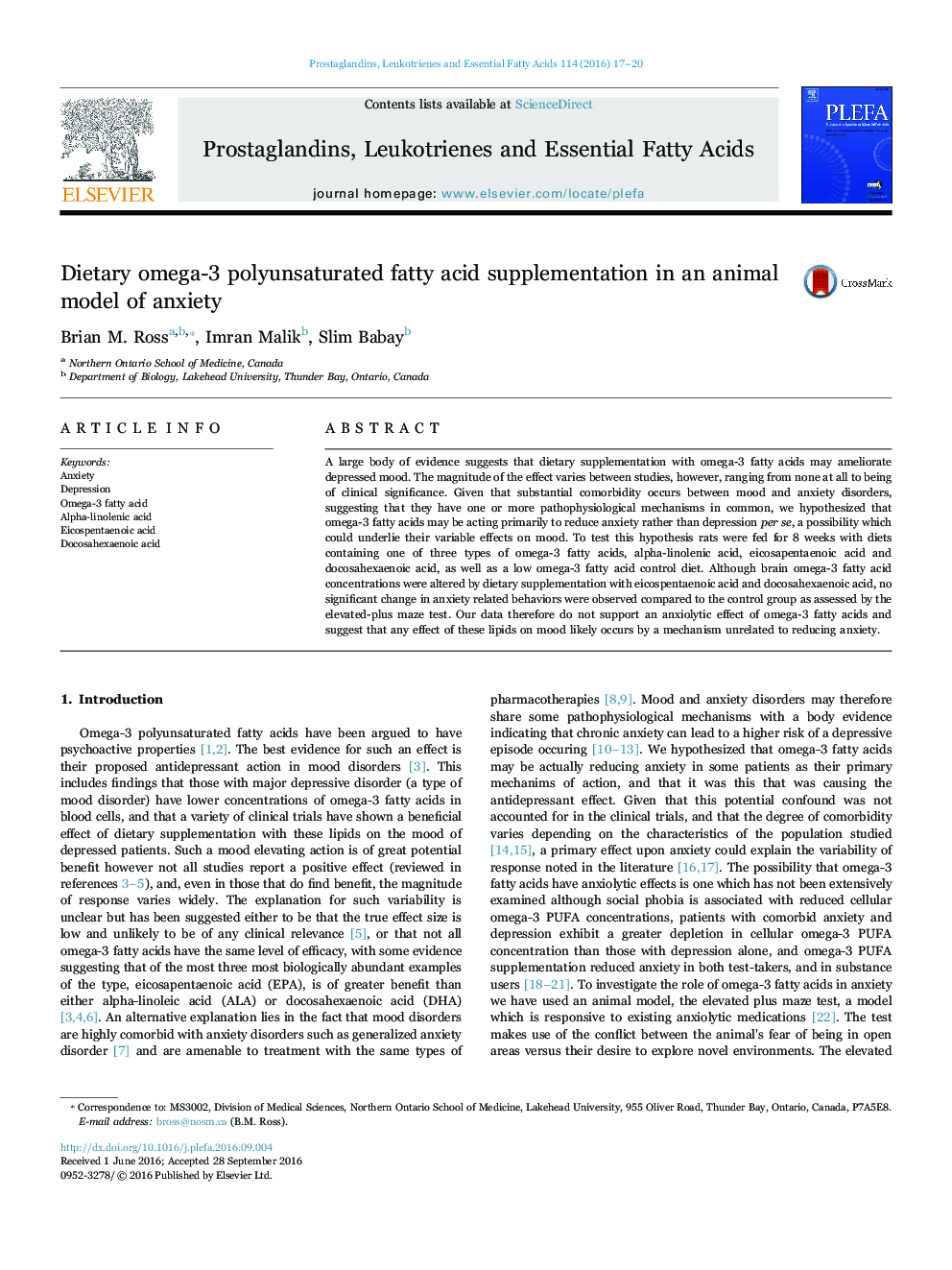| Article ID | Journal | Published Year | Pages | File Type |
|---|---|---|---|---|
| 5584918 | Prostaglandins, Leukotrienes and Essential Fatty Acids (PLEFA) | 2016 | 4 Pages |
Abstract
A large body of evidence suggests that dietary supplementation with omega-3 fatty acids may ameliorate depressed mood. The magnitude of the effect varies between studies, however, ranging from none at all to being of clinical significance. Given that substantial comorbidity occurs between mood and anxiety disorders, suggesting that they have one or more pathophysiological mechanisms in common, we hypothesized that omega-3 fatty acids may be acting primarily to reduce anxiety rather than depression per se, a possibility which could underlie their variable effects on mood. To test this hypothesis rats were fed for 8 weeks with diets containing one of three types of omega-3 fatty acids, alpha-linolenic acid, eicosapentaenoic acid and docosahexaenoic acid, as well as a low omega-3 fatty acid control diet. Although brain omega-3 fatty acid concentrations were altered by dietary supplementation with eicospentaenoic acid and docosahexaenoic acid, no significant change in anxiety related behaviors were observed compared to the control group as assessed by the elevated-plus maze test. Our data therefore do not support an anxiolytic effect of omega-3 fatty acids and suggest that any effect of these lipids on mood likely occurs by a mechanism unrelated to reducing anxiety.
Related Topics
Life Sciences
Biochemistry, Genetics and Molecular Biology
Clinical Biochemistry
Authors
Brian M. Ross, Imran Malik, Slim Babay,
